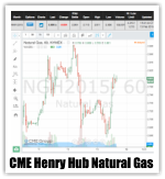When Comparing Apples-to-Apples, are You really doing so?When I first got into Deregulated Energy Industry I worked in a Business-2-Business (B2B) sales, we offered one Supplier, one Product, one Price fits all. Today I can still recall being upset that the price I was offering was easily beaten by our competitors the "Broker". Now 15 years later I'm on the other side of the fence, with a portfolio of over 40 suppliers, multitude of Product options and some of the best pricing in the industry. Sometimes our company goes up against other Broker Shops in a competitive bid situation and at times we do run into B2B Customer Acquisition Companies, that is when it gets interesting. When we go up against other Broker Shops the difference in a price is measured by a fraction of a penny. It is a totally different story if we run into B2B sales reps, when that happens the price difference baffles me, in favor of the B2B rep that is. How is it possible? (you ask) The answer is simple; We are no longer comparing Apples to Apples and at times not even Apples to Oranges. As the industry matures and products get more complex unfortunately for us so do the sales tactics of the B2B Customer Acquisition Sales Organizations. I'm not going to paint all Direct Marketing Companies with one brush stroke, but I do want to bring attention to this sensitive subject. Here is a scenario/true story: USEC (that's us the Broker) priced out a Hotel in Joliet, Illinois this past Spring. The product we suggested to the customer is a Fixed All-in price, Term was for 12 months, Supplier with the best quote came in at $.0583 per kWh. The following day we got an email from the customer, he wanted to let me know that he decided to go with another "Broker" this time, further more he informed me that my quotes were almost a penny higher then what she was offering. Well, can't even begin to tell you how shocked I was, years of experience and my gut instinct was telling me that whom ever the other "Broker" was, they were definitely not offering the same product or term. I strongly suggested for the customer to double check and make sure that we are comparing Apples-to-Apples, one way to do so is to ask the other Broker the following:
Customer got back to me the same day, "Everything checks out, she looked at your offerings and assured me that it is the same product." Well, it was what it was and such is the nature of the business, we will not win all the time, the other "Broker" must of had a Supplier in her portfolio that knew something everyone else did not. My advise to the customer was to be cautious and read every letter of the agreement before signing and if anything changes in the future I'm always just a phone call away. As you might have assumed, that was not the end of the story. This morning I received an email from the same Customer, that email is the reason for this blog entry. The email had Customer's first invoice from the new Supplier, the same one that the other "Broker" put him into a contract with, as soon as I saw who the Supplier was I knew the customer got misled (lets call it for what it was, he was bluntly lied to and is now royally screwed). We have had run-ins with the B2B team selling that product in the Greater Chicago Area, the so called "Broker" was not a Broker at all but a representative for a Customer Acquisition Company, simply B2B sales rep (this happens often, B2B reps want to sound credible, so they call themselves "Brokers"). Getting back to the nightmare that the Customer put himself into. Turns out that the other "Broker" locked the customer into a 36 month term using the Energy Only product, meaning that the customer was not comparing Apples-to-Apples during the procurement process (it was not even Apples-to-Oranges). Energy Only product is exactly what it sounds like, the product is designed to lock in the cost of Energy Only, all the other Deregulated Components (Capacity, Transmission, PJM fees, etc..) are passed through to the customer on top of that Fixed Energy Only cost. The Customer was in distress, "What am I paying?" We meticulously started to go over each line item on the invoice, in the process of doing so I explained what each charge is for, was it a Deregulated Components and was it included in the quotes that I provided him with. We also added up all of the Deregulated Components in order to understand his true cost of power. When all was said and done the final price per kWh for the Customer was $.0725 not the $.0489 he was quoted 8 months ago. In hindsight the $.0583 per kWh was the best option, but when given a choice of paying less by almost a penny and persistent assurance by the other so called "Broker" that it was the same product, Customer got suckered into signing the agreement. To make things worse, Customer tried calling the "Broker" her cell phone was disconnected (this happens often with today's B2B Customer Acquisition Representatives). We currently working with the Customer and the Supplier in trying to resolve this issue, but there is only so much we in a Broker Community can do when a situation such as this one comes up. What to do when comparing offerings from Competing Brokers.Although some of these might sound elementary, but your will be surprised to learn the percentage of Business Owners who go by what the so called Broker says without double checking the paperwork.
Final Thought: "Protect your business like you would your baby." I'm sure you won't let your child enter into any legal binding agreement without doing due diligence. Why should your business be any different?
0 Comments
Your comment will be posted after it is approved.
Leave a Reply. |
Mikhail Skachko"Customer is always right, even if they are wrong." Archives
February 2016
Categories |
Some of our Clients
"After taking a chance on a USEC Broker, we are happy to have consistent savings in the last 4 years over ComEd. With USEC knowledge and experience, they were able to provide us with multiple options and steer us in the right direction to cutting cost. Everything has been A+ so far."
- Chicagoland Restaurant -
- Chicagoland Restaurant -
|
U.S.E.C. LLC
d/b/a US Energy Consultants 13215 Stafford Rd, Suite #500 Missouri City, TX 77489 713-772-0446 office 888-764-3888 fax |


















